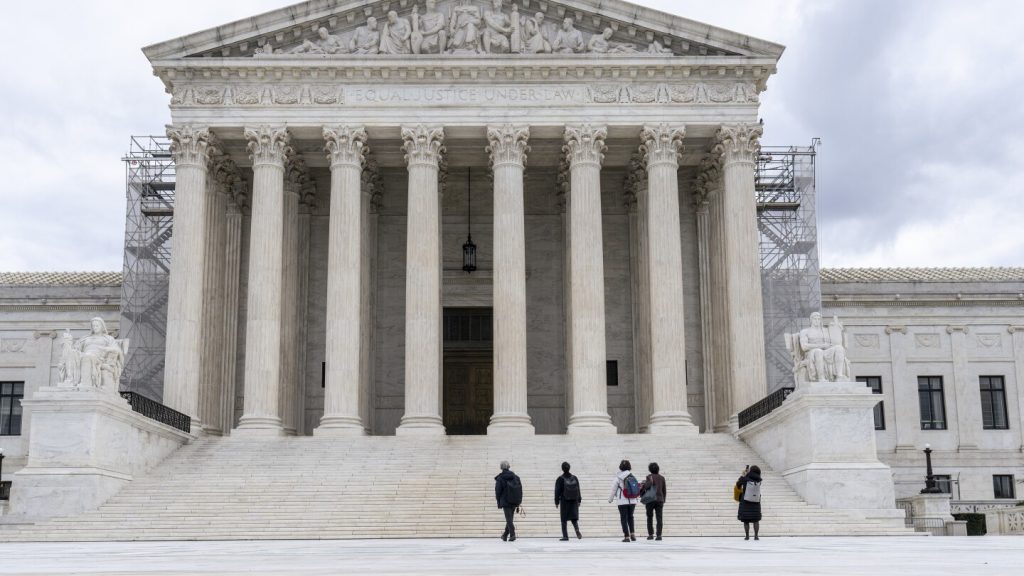The Supreme Court is considering a case that could determine the extent of the federal government’s authority in regulating and combating controversial social media posts. Republican-led states are challenging the Biden administration’s actions, accusing officials of pressuring social media platforms to suppress conservative viewpoints. Lower courts have ruled in favor of the states, but the Supreme Court has blocked these rulings while it reviews the case. Justices expressed concerns about how a ruling for the states could impact government interactions with social media platforms.
During the arguments, justices questioned the implications of allowing government officials to influence social media platforms in taking down posts, particularly those that contain personal information without consent. The case is part of a series of legal challenges involving social media companies and free speech. In a separate case last week, the court established guidelines for public officials blocking followers on social media. The present case highlights complaints about censorship of conservative views on social media platforms, with the states alleging that government entities coerced changes in online content.
The states argue that government officials, including White House staffers and law enforcement agencies, pressured social media platforms to suppress the speech of millions of Americans. They claim that government interference could violate individuals’ speech rights, raising concerns about the influence wielded by federal agencies on social media platforms. Justice Samuel Alito expressed support for the states’ arguments, highlighting the government’s persistent efforts to influence social media companies. Other justices, however, emphasized the need for government communication with platforms on issues such as national security and public health.
The Department of Justice defended the Biden administration’s actions, arguing that the government’s interactions with social media platforms are not coercive and serve legitimate purposes. Government lawyers emphasized the importance of addressing hate speech, misinformation, and other harmful content on social media platforms. Justices Elena Kagan and Brett Kavanaugh drew parallels between these communications and interactions with traditional media outlets, suggesting that government officials often engage with the press in a similar manner. Free speech advocates called on the court to establish clear guidelines for government involvement in shaping public discourse.
The Supreme Court’s decision in this case, expected by early summer, could have far-reaching implications for the regulation of online content and the balance between free speech and government intervention. The outcome of this case will likely set standards for how the federal government can engage with social media platforms and influence the content they host. As social media continues to play a significant role in public discourse, the court’s ruling will shape the boundaries of government authority in regulating online speech while upholding First Amendment rights. The case underscores the complexities of free speech in the digital age and the challenges of balancing competing interests in the online realm.


